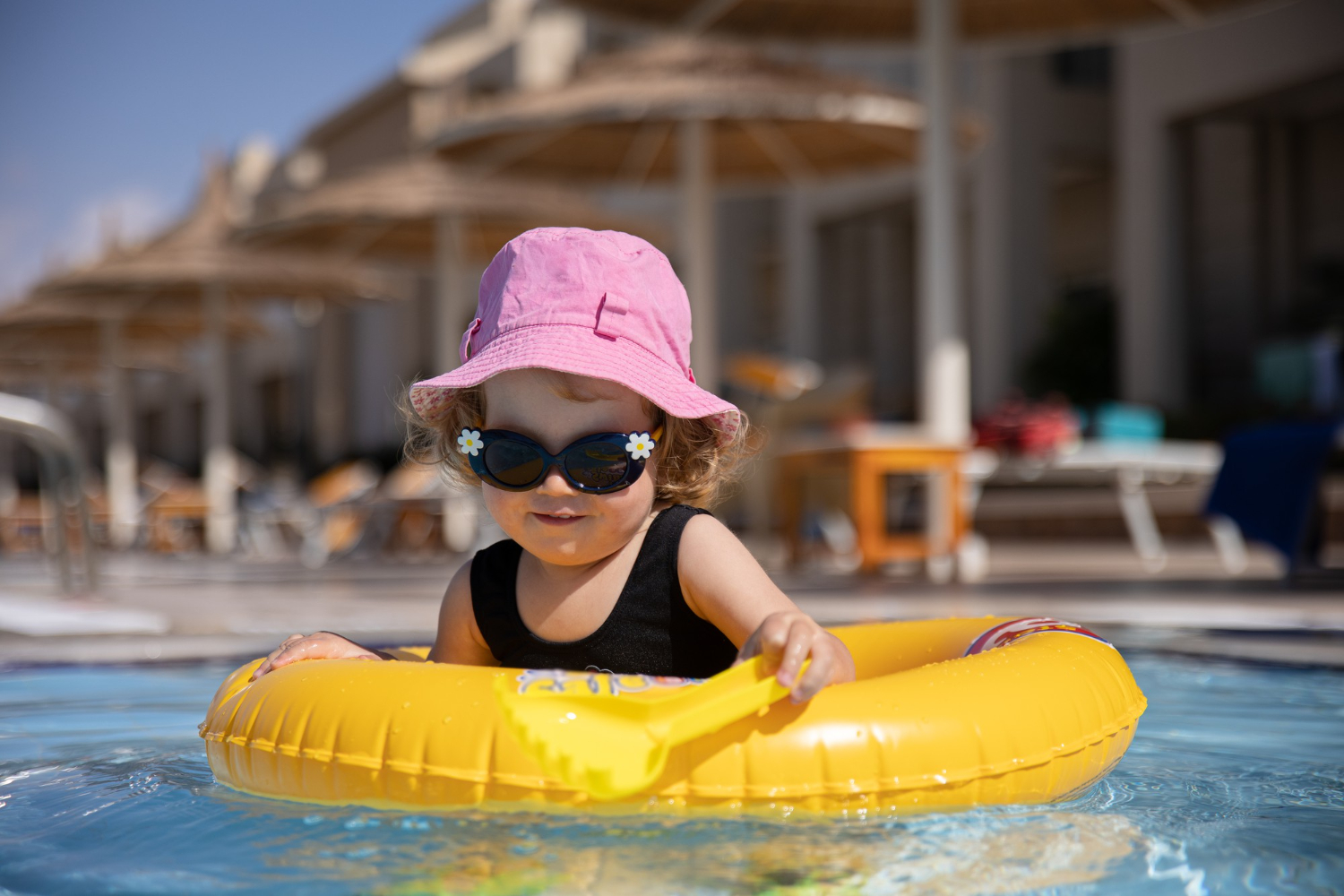Parents can feel warm and fuzzy when they watch their babies swim in a pool with their lovely little hands and feet. But teaching infants to swim at the correct age is pivotal so that they stay safe and have fun in the water. So, a lot of parents enroll their babies for official swimming classes. See, like any other skill, it is best when the skill is taught by professionals as these sessions educate newborns on how to swim so that they have a better chance of surviving if they fall into the water. Most of the time, these courses are given in a pool with the parent or guardian there. Ready to teach your kids to swim? Let us tell you that there are fewer joys in life than swimming with a baby!
Wait! Wait! Wait! Can infants swim? Infants do not know how to swim from birth. They must instead learn it, just as they would learn to speak or walk. But they have certain natural reflexes that let them do simple movements that look like swimming strokes. Infants, in fact, are born with a natural reflex called the diving reflex. This reflex is activated when their face is submerged in water. It is a protective mechanism that helps prevent drowning.
When should you start teaching infants to swim?
Well, parents, the decision to teach your kids to swim is indeed your own. A personal decision! Want our opinion? The best age for a baby to start swimming class is between six months and a year. At this age, babies are typically developing good head control and motor skills, which are essential for learning to swim.
However, as you would already know (!), each child develops at their own pace. Some infants may be ready to start swimming earlier, while others may need more time. Your child’s pediatrician knows your child the best. Consult with him/her before you take your kid on a new adventure!
Precautions for Baby Pool Safety
Precautions to take while teaching infants to swim:
Take it from us, swimming with a baby is an incredible bonding experience. Do note that it also comes with its share of risks. In order to make sure that the time in the water is safe and full of joy, consider the following precautions:
- Choose the right swim school or instructor: Enroll your baby in a reputable swim school with certified instructors. Look for a facility that specializes in teaching infants and toddlers, as they will have the necessary experience and equipment to ensure your child’s safety.
- Gradual exposure: It’s essential to introduce your baby to the water gradually. Start with gentle splashing and shallow water activities before progressing to more advanced skills. This will help your baby feel comfortable and confident in the water.
- It is all about the temperature: Children have a lower tolerance for cold temperatures, so, kindly ensure that the water is warm enough for your child’s delicate skin. Yup, the water temperature should be between 32 and 34 degrees Celsius.
- Use appropriate flotation devices: While teaching your child to swim, use flotation devices specifically designed for infants. These devices should offer proper head and neck support while keeping your baby’s face above water.
- Maintain constant supervision: Never leave your baby unattended in or near the water, even for a brief moment. Drowning can happen quickly and silently, so it’s crucial to maintain constant vigilance.
- Be aware of waterborne illnesses: Swimming pools can sometimes harbour harmful bacteria, viruses, and parasites. To protect your baby, always shower before and after swimming, and make sure your child doesn’t swallow any pool water.
- Establish a swim routine: Consistency is key when teaching infants to swim. Try to establish a regular swimming schedule to help your baby become more comfortable and confident in the water.
Baby Pool Safety Tips
Ensuring baby pool safety is an essential aspect of introducing your child to swimming. We have listed some of the most essential tips for you to keep in mind 🙂
- Pool fence: If the baby is going to learn to swim in a public swimming pool, check for one that has a pool fence around it. In case you have a pool at home, install a four-foot-high fence with a self-closing, self-latching gate. This will keep your baby from unintentionally entering the pool area unsupervised.
- Use pool alarms: Pool alarms can alert you when someone enters the pool area or when there is movement in the water. These devices can provide an additional layer of security for your baby.
- Learn CPR: Parents, accidents can happen! Learn to perform cardiopulmonary CPR. It could save your life and your little one’s life in a serious situation. Enroll in a CPR class and make sure other family members are trained as well.
- Establish pool rules: Setting clear and consistent rules for your baby and other children in the household can help prevent accidents. Make sure everyone understands the importance of not running around the pool, not pushing others into the water, and always having adult supervision while swimming.
- Remove toys from the pool area: Toys can be tempting for children and might encourage them to enter the pool area unsupervised. Make a habit of removing toys from the poolside after every swim session.
- Teach your child to ask for permission: Instil the habit of asking for permission before entering the water. This can help ensure that your child understands the importance of adult supervision while swimming.
- Keep rescue equipment nearby: Always have a life preserver, a reaching pole, and a first aid kit readily available near the pool area. In case of an emergency, having these tools within reach can make a significant difference.
In conclusion, teaching infants to swim is a beautiful way to bond with your child and instil a lifelong love for the water. However, it’s essential to take the necessary precautions and prioritize baby pool safety. The task isn’t big. Stay vigilant, and be well prepared. Just be consistent in your approach. Such an approach will ensure that your baby’s swimming journey is a safe and enjoyable experience for everyone involved. So, go ahead and dive into the magical world of swimming with your little one, and cherish the memories you create together.
Like the blog? head to our blogs section to read many more interesting blogs on parenting!















